Insurances
At Evergreen Mortgages we want to make sure our clients not only achieve that dream home but get to stay in it too, that’s why we review and recommend insurances for our clients as part of the service.
In fact, if you want us to just look at your insurances for you, with no mortgage or other service attached we can do that too, and there are no advice fees charged for insurance reviews… We think it’s that important you have professional advice on this.
Get in touch today for your free insurance review.
We love what we do.
Do I need insurance?
This is one of the hardest areas to write about for me, because it’s the most important, THE MOST IMPORTANT and if you are reading this and don’t have insurance, then we need to talk about it.
There are a number of different types of insurance, we can go over them together and you will see them in detail here on the website. Which you have is less important than at least having something in place to help should you find yourself in need.
No mortgage? No problem – you can still get insurance as it isn’t linked to a mortgage.
If you do have a mortgage, mortgage companies won’t check you have it either. Their security is your house. As long as you have insurance for the house – buildings cover, then they are satisfied that their money and investment is protected. If you don’t yet have buildings insurance we can put you in touch with an excellent company to help with this, click here.
So why do I need it?
I could tell you story after story of tragic circumstances, both personally and professionally, but instead, I ask you to consider – really, really, consider the following questions (spoiler alert, it’s not a happy or easy conversation, but we are adults and this is important!):
- What happens if I die?
- Who pays the funeral costs?
- What happens if I get cancer or another serious illness?
- What happens if I’m off work sick long-term?
- What happens if I can’t work for one month?
Okay, now you’ve done that exercise, grab a piece of paper, grab a pen, and let’s do it again. (Did I mention this is important.) This time make sure you are answering the really hard questions:
Did you consider:
How good is that Work Cover really? What if you change jobs? What is SSP, how much is it, how do I apply?
Do you have young children or elderly relatives that depend on you? Who provides childcare or gets them to school or appointments if you are unable to?
If I’m seriously ill, travelling to hospital appointments, or being made weak and tired from treatments, how do I get to and from the hospital, how do I get my food shopping, what if my home needs adaptations? How do you pay for your pet food and care? Who walks the dog?
Let’s say you decided you would move back to your parents or siblings. What does that look like?
How long will it take to sell your house? Who pays the costs on that while you wait and who pays for the funeral?
Life insurance to cover the house if you die can be very cheap and ensures the mortgage is paid, but… What next? How do they get to stay there without you, who covers the bills and food without your income? What about kids clubs or sports clubs, do they have to give those up? Will additional care now need to be paid for – after-school clubs, childcare or in-home care for elderly relatives or meals on wheels?
You may say “I don’t need it yet, I live at home with my parents, I’m saving my deposit “ – okay, let’s play this through… You have an accident or get unwell and now you can’t work, do you lose all your hard earned savings, on keeping up the car and mobile phone payments? What if the issue is more long-term, does the home need adapting? Who pays for your lifestyle from now forwards? What about holidays and meals in the future? And the younger you are, the cheaper it is to put insurance in place.
I’ve seen insurance offered for less per month than many people spend on fancy coffee or alcohol. You should be able to get something in place even with a minimal budget. If you’re covering pet insurance or your washing machine or your mobile phone, and not yourself, you need to correct this!
If you’re serious about insurance, I recommend around 10% of your rent or mortgage payment is a reasonable figure for insurance payments. My own personal insurance is equal to 25% of our current mortgage payment which has allowed for a tailored portfolio of products, including income protection, life and critical illness cover and family income benefit, but your budget is up to you.
“This is all true – but I can’t get insurance “ – for some people who are already unfortunate enough to have serious long-term ill health, sadly this can be true, however the industry is evolving. If you have been refused due to your BMI or medical history, you may now be eligible. There are a few providers who are leading the way in covering diabetics and those in remission from cancer, so it’s always worth a call to see if the industry has caught up with your needs.
We do not charge fees for reviewing or applying for insurance on your behalf. It’s that important to us that you are covered. We do get paid a commission by the insurer which is a commercial decision and does not impact your premiums.
Get in touch with Evergreen Mortgages today, for your free insurance review.
What is Insurance?
Broadly insurance falls into two types, lump-sum insurance or monthly cover. If you want to make sure your mortgage is paid off in full, you need a lump sum cover to cover that amount and for the term of your mortgage. If you want to make sure that you/your family can continue to pay the council tax, food shopping, gas and electric and other household costs then you may be better suited with a monthly cover payment insurance that provides a replacement income per month.


Budget?
Insurance is a tailored product so we can find something to fit what you need or we can find something to meet what you can afford. Personally, I recommend around 10% of your rent or mortgage payment is a reasonable figure for insurance payments. My personal insurance is equal to 25% of our current mortgage payment which has allowed for a tailored portfolio of products, but your budget is up to you.
I’ve seen insurance offered for less per month than many people spend on fancy coffee or alcohol. You should be able to get something in place even with a minimal budget. If you’re covering pet insurance or your washing machine or your mobile phone, and not yourself, you need to correct this!
Common Types Of Insurance
Pays a lump sum payment if you die or are diagnosed with a terminal, serious or critical illness. Different policies cover different illnesses to different degrees so it’s important you read the small print.
Provides a monthly income to help support you and/or your family. This is available as an insurance to pay after death or diagnosis of a terminal illness. Alternatively, a more comprehensive version of this cover would also provide a monthly payment should you be diagnosed with a serious or critical illness.
Provides a monthly income to help support you and/or your family if you are unable to work.
Think of this insurance like private sick pay. It can step in and take over when your sick pay with work ends or top up your work cover if your sick pay is SSP or similar and not sufficient for your needs.
Even if you are a houseperson and not in official employment or if you are self-employed, you can still get income protection and it may still be helpful for you.
Please have a look through the ‘why do I need insurance?’ questions below to help you consider why you may need an income monthly if you’re unable to carry out your normal daily routines at home.
Often available without medical underwriting, this cover is specifically available to those over age 55 and generally provides a lump sum payment to support those left behind after you die or are diagnosed with a critical illness.
Does what it says on the tin. Again no medical underwriting for this type of insurance.
Pays a lump sum payment if you die or are diagnosed with a terminal, serious or critical illness. Different policies cover different illnesses to different degrees so it’s important you read the small print.
Provides a monthly income to help support you and/or your family. This is available as an insurance to pay after death or diagnosis of a terminal illness. Alternatively, a more comprehensive version of this cover would also provide a monthly payment should you be diagnosed with a serious or critical illness.
Provides a monthly income to help support you and/or your family if you are unable to work.
Think of this insurance like private sick pay. It can step in and take over when your sick pay with work ends or top up your work cover if your sick pay is SSP or similar and not sufficient for your needs.
Even if you are a houseperson and not in official employment or if you are self-employed, you can still get income protection and it may still be helpful for you.
Please have a look through the ‘why do I need insurance?’ questions below to help you consider why you may need an income monthly if you’re unable to carry out your normal daily routines at home.
Often available without medical underwriting, this cover is specifically available to those over age 55 and generally provides a lump sum payment to support those left behind after you die or are diagnosed with a critical illness.
does what it says on the tin. Again no medical underwriting for this type of insurance.
The hidden part of insurance...
Did you know that not all insurances are the same. Depending on the company you use, you may have access to a whole range of additional extras that could help without you ever needing to claim:
GP 24 – allows for private medical consultations 24 hours a day from anywhere in the world online
Halo or Red arch – these two additional add-ons offered by some of the leading insurers, provides a whole host of additional benefits that can include secondary medical opinions, additional access to GPs additional access to nursing services and counselling among other benefits.
Bereavement support – providing Counselling another helpful services after the loss of a loved one
Physiotherapy- helping you get back to full fitness. And back to work as soon as possible.
Fracture cover – pays out a lump sum of varying amounts, depending on what part of the body he received a break or fracture helping to cover costs of being off work
Children’s cover – pays out a lump sum if your child is diagnosed with a critical illness. Policies vary on what they consider a child, but the good news is that unlike theme, parks and airlines, most insurers, consider a child to be a child if they’re under 18 or potentially with better policies, up to age, 23, or 24.
Not all companies offer all of the above, but read the small print! You could have extra benefits, you’re not aware of.
If your current policy doesn’t include any of this, then please get in touch as we need to review your insurance because all these extras could be included for a difference of £6 or £3 or £1 and don’t you think it’s worth just £1 more? Depending on when and where the policy is from it could even save you money to look into a new policy and still include all of these types of additional benefits. Surely that’s worth a call?
The other very important difference between insurance policies is what they cover. Unless you’re in the industry, It’s difficult without specialist IT programs to be able to quantify the difference between the policies, but for the sake of saving a pound or two do you really want to call up to be told that your particular type of cancer/illness isn’t covered? Even ‘terminal illness’ as an insurance term can vary so it’s really important that you give us a call so we can ensure the small print works for you.


